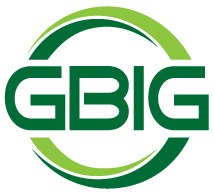Daniel Aronowitz, President Donald Trump’s nominee to head the Employee Benefits Security Administration (EBSA), recently laid out his vision for the agency.

Aronowitz’s experience includes time as a labor attorney and as president of multiple companies in the insurance industry. If confirmed, Aronowitz would head the agency, formerly led by Lisa Gomez, who resigned from the agency at the conclusion of President Joe Biden’s presidency. During Aronowitz’s confirmation process, the position remains vacant.
This article provides an overview of EBSA, key takeaways from Aronowitz’s written testimony and Senate hearing, and the potential impact on employers.
Overview of the EBSA
EBSA is an agency within the U.S. Department of Labor (DOL). The agency is responsible for administering, regulating and enforcing the provisions of Title I of the Employee Retirement Income Security Act of 1974 (ERISA).
While the agency is formally responsible for ensuring compliance with Title I of ERISA, the administrator drives key strategic initiatives and enforcement priorities for the agency.
Key Takeaways
Aronowitz’s testimony and Senate hearing focused on three key areas:
1. EBSA Enforcement
Aronowitz’s first stated priority is to “improve” EBSA’s enforcement of fiduciary law. In general, he has demonstrated an interest in expanding options for retirement benefits. During his hearing, he pledged to “end the practice of open-ended investigations that go on for years.” He hopes to end “regulation by litigation” and ensure that EBSA’s enforcement is “fair, even-handed and efficient.”
Specifically, Aronowitz advocated for ending “the bias against employee stock ownership programs (ESOPs),” claiming that the DOL has spent decades targeting firms that offer these retirement plans. An ESOP is a qualified, defined-contribution employee benefit plan designed to invest primarily in the stock of the sponsoring employer. It’s similar to a 401(k), but the company contributes shares of its own stock (or cash to buy stock) to the plan rather than employees contributing their own funds.
Large employers have faced class-action lawsuits in recent years over the administration of their ESOP plans. This new agenda could signal that litigation regarding ESOPS could be eased, possibly prompting more employers to explore more retirement options.
2. Regulatory Clarity
According to his written testimony, Aronowitz’s second priority for EBSA is to provide regulatory clarity so that plan sponsors have the proper incentive to expand employee benefits.
His statement identified nine key areas:
- The modernization of defined contribution plans to include alternative investments, such as private equity and cryptocurrency
- The consideration of environmental, social and governance factors
- The fiduciary rule as applied to individual retirement account rollovers
- Mental health parity
- Plan forfeitures
- Pension risk transfers
- Tobacco and vaccine surcharges and wellness programs
- The management of pharmacy benefit managers and health care costs
- Cybersecurity to protect participants’ assets
During his Senate hearing, Aronowitz advocated for clear communication as a standard for engaging with the benefits community. “We will end the era of regulation by litigation by providing clear and effective fiduciary guidance,” he said. He expressed an intention for the agency to avoid vague language, establish clear regulations and implement them fairly to encourage plan designers’ broader abilities for creativity.
3. Plan Sponsorship
Encouraging plan sponsorship is a third listed priority for Aronowitz, indicating support for expanding retirement and health care plan access to more independent contractors, including through association health plans (AHPs).
An AHP is a type of ERISA-covered group health plan sponsored by a group or association of employers (instead of a single employer) to provide health coverage to employees of the AHP’s employer members.
During the hearing, he advocated for unlocking the potential of the employee benefit system, including innovative types of plans like association health plans and pooled employer plans. “I want to work with Congress on anything that will allow independent contractors to have the dignity of retirement savings and health security,” he said.
Summary
Aronowitz has stated that the priorities are revamping EBSA enforcement, providing regulatory clarity and encouraging plan sponsorship. These priorities provide insights into what the agency could look like and how it could impact organizations that offer employer-sponsored health coverage and retirement benefits.
As of this writing, Aronowitz has not yet been confirmed by the Senate. Even if confirmed, these priorities may face opposition. Employers should continue to monitor any developments from EBSA and the current administration.
Contact us for more resources on employee benefits.

